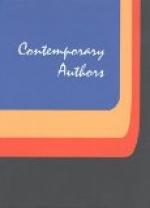|
This section contains 840 words (approx. 3 pages at 300 words per page) |

|
World of Anatomy and Physiology on Alan Lloyd Hodgkin, Sir
Alan Lloyd Hodgkin built the foundations of much of modern neuroloscience by defining the electrical and chemical characteristics of nerve impulses. Along with Andrew F. Huxley, the two described the firing of nerve impulses, for conducting the impulse along the axon, and for founding the new science of ion channels. The two performed experiments on the nerve fibers of squid and described the nerve impulses with a series of mathematical equations. For their research in this area, which resulted in the ionic theory of nerve impulses, the two men shared the 1963 Nobel Prize in physiology or medicine with John C. Eccles.
Hodgkin was born in Banbury, Oxfordshire, England, to George L. and Mary Wilson Hodgkin. Hodgkin's father died in Baghdad during World War I, only a few years after his birth. Hodgkin was educated at the Downs School in Malvern and the Gresham School in Holt. In 1932, he...
|
This section contains 840 words (approx. 3 pages at 300 words per page) |

|


